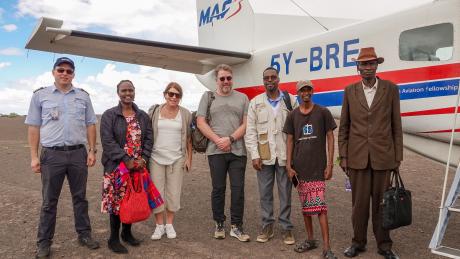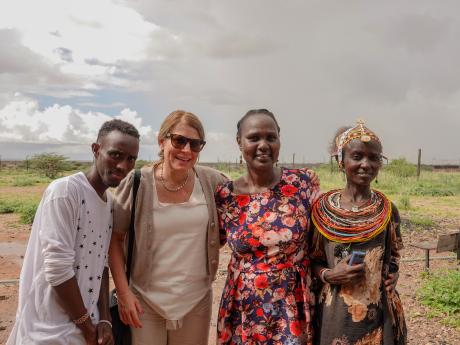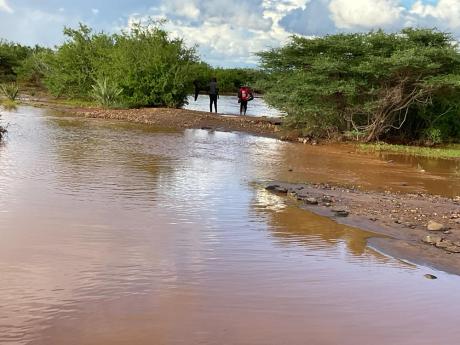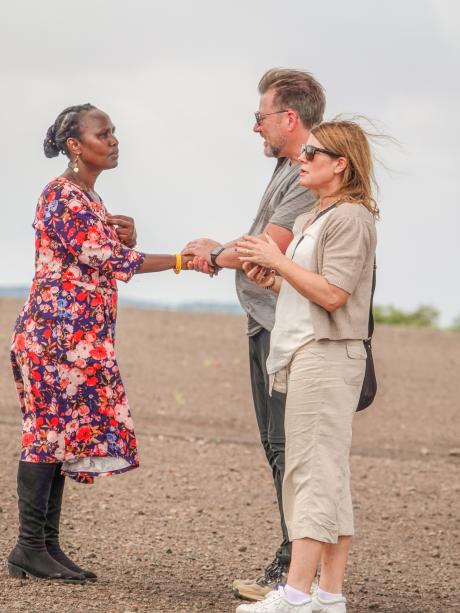
It only took two hours of flight for Noella to reach Kargi, where she brings education to women in remote areas.
When heavy rains and dense clouds meant it was not possible to land in Marsabit, MAF pilot David Graaf had to alter his destination to Kargi. This change was a relief for Noella Achieng, as the new route favoured her destination.
Noella recounts, “It was my first time flying, and initially, the plan was to land in Marsabit, and I was concerned that the weather conditions from the heavy rains would lead the plane to leave me there.”
The flight with MAF was amazing, I am happy they brought me home. If I had travelled by road, it would have taken more than the normal 13 hours we use on road, a contrast to the two hours flight.

If Noella had landed in Marsabit, she would have had to wait for many days before connecting to Kargi by road. This is because the bridge linking the two locations was swept away by heavy rains, rendering the road impassable.
A joyful Noella adds, “The flight with MAF was amazing, I am happy they brought me home. If I had travelled by road, it would have taken more than the normal 13 hours we use on the road, a contrast to the two hours flight.”
Noella is a certified teacher by the Teacher Service Commission in Kenya, and she runs an organisation called The Virtuous Women Global Network. She also serves in Christ is the Answer Ministries (CITAM) missions.
“My primary goal is to empower women through education and now that schools are closed in the country (for holidays), I would like to use my two-month break to teach the Swahili language to the women from the pastoralist community with the aim of breaking the language barrier,” she said.
“It brings me so much joy and satisfaction to know that I can use my gift to empower these women through adult literacy. I thank God for this opportunity, I have so longed for, it’s a calling.”

Learning the language would help the local women communicate effectively with their school-going children and the visitors who frequent their village. Noella hopes to continue this amazing journey driven by purpose and fulfilment with the local women and as they learn, she hopes to introduce the English language as well.
On board the flight were MAF International board members Rachel Gardner and Soren Filbert, who were visiting the country and the MAF Kenya program for the first time. CITAM’s, Paul Kimanthi, the Finance and Administration Officer, and Anthony from a partner organisation were present.
The MAFI board members were eager to gain a clear picture of the impact of MAF flights in underserved locations in the country and were happy to visit the CITAM project in Kargi. For Anthony, the route did not favour his destination to Marsabit. Although he could have easily connected to Marsabit from Kargi by road, a fallen truck blocking the road forced him to return to Kenya’s capital and plan for a different day of travel.

CITAM has been a long-standing partner, utilising MAF aircraft to access remote communities in the north. They offer medical and veterinary services to pastoralist communities who otherwise would not have access.